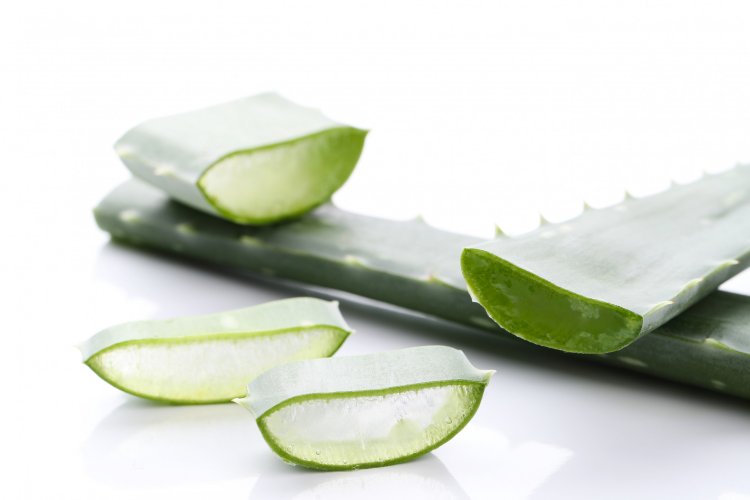The Miracle Plant: A Comprehensive Guide to Aloe Vera
Aloe vera, a succulent plant species native to the Arabian Peninsula, has earned a reputation as a versatile healer and rejuvenator throughout history. Revered by ancient civilizations like the Egyptians, Greeks, and Romans, aloe vera's uses have ranged from medicinal to cosmetic. In this comprehensive guide, we delve into the rich tapestry of aloe vera's properties, benefits, and applications.

Botanical Profile
Aloe vera, scientifically known as Aloe barbadensis miller, belongs to the genus Aloe within the Asphodelaceae family. It thrives in warm, arid climates and is characterized by its thick, fleshy leaves that contain a gel-like substance. The plant typically grows up to 24-39 inches (60-100 cm) tall and produces yellow tubular flowers.
Historical Significance
The historical significance of aloe vera spans millennia. Ancient Egyptian texts dating back to the 16th century BCE mention the use of aloe vera for embalming and healing wounds. It was considered a sacred plant, often referred to as the "plant of immortality." Greek and Roman physicians such as Dioscorides and Pliny the Elder extolled its medicinal virtues, while Indian Ayurvedic texts praised its ability to treat various ailments.
Nutritional Composition
The gel found within the leaves of the aloe vera plant is a treasure trove of nutrients, including vitamins, minerals, enzymes, amino acids, and polysaccharides. Some of the key components include:
- Vitamins: Aloe vera is rich in vitamins A, C, and E, which are potent antioxidants that protect the body from oxidative stress.
- Minerals: It contains essential minerals such as calcium, magnesium, zinc, and selenium, which are vital for various physiological functions.
- Enzymes: Aloe vera gel contains enzymes like amylase, lipase, and bradykinase, which aid in digestion and have anti-inflammatory properties.
- Amino Acids: It provides a range of amino acids, including seven of the eight essential amino acids that the body cannot synthesize on its own.
Health Benefits
The health benefits of aloe vera are wide-ranging and backed by scientific research. Some of the notable benefits include:
- Skin Health: Aloe vera gel is a popular remedy for skin conditions such as sunburns, acne, eczema, and psoriasis. Its moisturizing and anti-inflammatory properties soothe irritated skin and promote healing.
- Digestive Aid: Aloe vera juice is known for its digestive benefits, including relief from indigestion, constipation, and irritable bowel syndrome (IBS). It helps maintain gastrointestinal health by promoting regular bowel movements and reducing inflammation.
- Immune Support: The polysaccharides in aloe vera, particularly acemannan, have immune-boosting properties that enhance the body's defenses against infections and diseases.
- Wound Healing: Aloe vera accelerates wound healing by stimulating cell regeneration, reducing inflammation, and preventing infection. It is commonly used to treat burns, cuts, and abrasions.
- Oral Hygiene: Aloe vera mouthwash can help maintain oral hygiene by reducing plaque formation, soothing gum inflammation, and freshening breath.
Usage and Precautions
While aloe vera is generally safe for topical and oral use, it's essential to use it responsibly and be aware of potential side effects. Some individuals may experience allergic reactions or gastrointestinal discomfort, especially when consuming aloe vera juice in large quantities. It's advisable to perform a patch test before applying aloe vera gel to the skin and consult a healthcare professional before using aloe vera supplements or juices, particularly if you have underlying health conditions or are taking medications.
In conclusion, aloe vera stands as a testament to nature's healing prowess. Its rich nutritional profile, coupled with its myriad health benefits, has earned it a revered status in traditional and modern medicine alike. Whether used topically or internally, aloe vera offers a holistic approach to wellness, promoting skin health, digestive function, immune support, and more. By incorporating aloe vera into your daily routine with care and mindfulness, you can harness the power of this miraculous plant to enhance your overall well-being.
Disclaimer: The information provided in this article is for educational purposes only and should not be considered medical advice. If you have any health concerns or are experiencing symptoms, it is important to consult with a healthcare professional, such as a doctor or clinic, for proper diagnosis and treatment. Always seek the advice of your doctor or other qualified health provider with any questions you may have regarding a medical condition. Do not disregard professional medical advice or delay in seeking it because of something you have read in this article.
#AloeVera #HealthBenefits #SkinCare #DigestiveHealth #ImmuneSupport #NaturalHealing #HolisticWellness
What's Your Reaction?





















